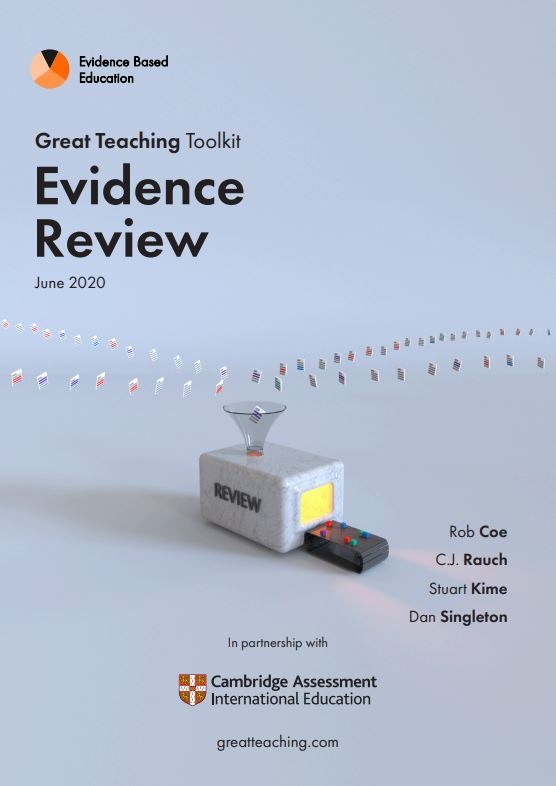-
ABOUT THE AUTHOR
Andrew Watson
Andrew began his classroom life as a high-school English teacher in 1988, and has been working in or near schools ever since. In 2008, Andrew began exploring the practical application of psychology and neuroscience in his classroom. In 2011, he earned his M. Ed. from the “Mind, Brain, Education” program at Harvard University. As President of “Translate the Brain,” Andrew now works with teachers, students, administrators, and parents to make learning easier and teaching more effective. He has presented at schools and workshops across the country; he also serves as an adviser to several organizations, including “The People’s Science.” Andrew is the author of "Learning Begins: The Science of Working Memory and Attention for the Classroom Teacher."
Tags
ADHD adolescence attention autism book review book reviews boundary conditions classroom advice conference speakers constructivism/direct instruction creativity desirable difficulty development dual coding elementary school embodied cognition emotion evolution exercise experts and novices gender high school homework intelligence long-term memory math methodology middle school mindfulness Mindset motivation neuromyths neuroscience online learning parents psychology reading retrieval practice self-control skepticism sleep STEM stress technology working memoryRecent Comments
- Book Club Materials for Just Tell Them – Education Rickshaw - Metro Health News on Just Tell Them: The Power of Explanations and Explicit Teaching...
- How to Present at a Conference... |Education & Teacher Conferences on Enjoyment or Skill? The Case of Reading
- How to Present at a Conference... |Education & Teacher Conferences on Do *Goals* Motivate Students? How about *Feedback*?
- Roberta on Seriously: What Motivates Teachers to Be Funny?
- Revisiting the "Handwriting vs. Laptops" Debate: More Moving Goalposts |Education & Teacher Conferences on Handwritten Notes or Laptop Notes: A Skeptic Converted?
ABOUT THE BLOG

An Argument Against “Chunking”
Learning and the Brain exists so that we can talk about good teaching together. Although…

Do Animations Improve Learning? A Definitivie Answer, Please…
Recently I discussed working memory overload with a group of wise and thoughtful teachers. I showed…

The Whole Toolbox in One (Free) Download
If you want to learn more about improving teaching with psychology research, I’ve got good…

The Cold-Calling Debate: Potential Perils, Potential Successes
Some education debates focus on BIG questions: high structure vs. low structure pedagogy? technology: good…

Navigating Complexity: When 1st Order Solutions Create 2nd Order Problems
Here’s a common classroom problem. As I’m explaning a complex concept, a student raises a…

Collaborative Learning and Working Memory Overload: Good News or Bad?
Consider the following paradox: Teachers need to give students instructions — of course we do! After…

The Dangers of “The Big Ask”: In Defense of Stubborn...
Let’s face it: teaching is hard. I’ve been a classroom teacher for roughly 20 years —…

“Embodied Cognition” in Action: Using Gestures to Teach Science
Here’s a topic that has gotten lots of enthusiastic attention in recent years: embodied cognition….

Getting the Principles Just Right: Classroom Decoration
The benefits of classroom decoration seem intuitive. After all, we decorate our homes in order…

Getting the Details Just Right: “Pre-questions”
Teachers, of course, ask students questions. ALL THE TIME with the questions. We ask questions…

